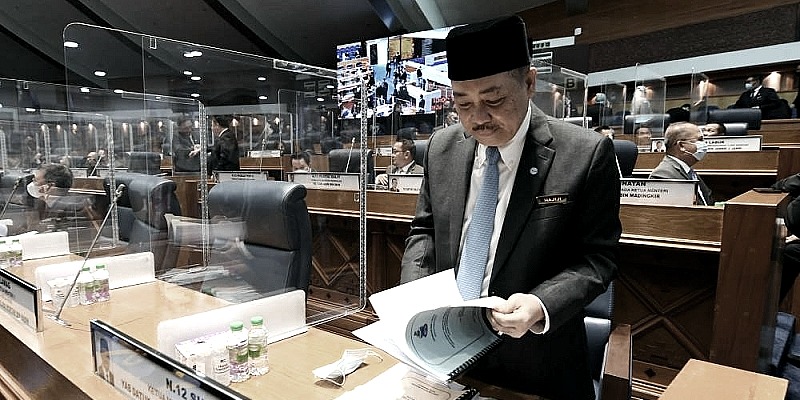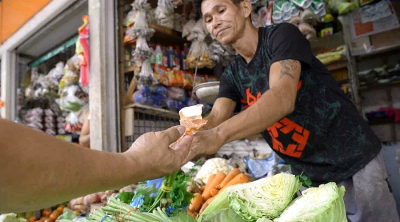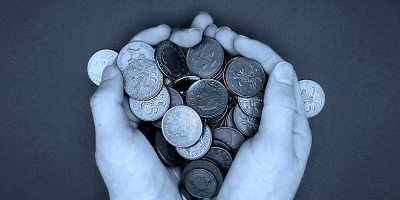Many Malaysians will continue to suffer over the next six to 12 months while those in government continue to enjoy their lavish lifestyles unashamedly.
To deal with the global inflation, the Malaysian government is expected to fork out an additional RM77.7 billion for cash assistances and subsidies on various essential items to help the people through the hard times.
However, this will also mean the treasury will be thrown into a dilemma.
Boosting government revenue is never easy. What the government can do is to cut unnecessary expenses, and this must be done right from the civil servants.
Secretary-general of the treasury Asri Hamidon has recently issued the Guidelines on Public Expenditure Savings to be implemented from 14 July. The two East Malaysian state governments, nevertheless, do not seem to buy into it, and the government’s austerity drive will likely end up an empty talk.
Sarawak premier Abang Jo said on Tuesday that the state government had the financial means to carry out the planned projects and that the federal austerity guidelines would not be implemented in the state.
He said he believed the Guidelines would produce the desired results in the federal government, but it was not applicable to Sarawak, adding that the state government would continue to implement rural transformation, bridge construction and other projects, and was even willing to take over some “sick” and stalled projects.
If indeed the Sarawak government led by Abang Jo is financially loaded, project tenders carried out transparently, and the projects catering to the needs of the people in the state, then there is absolutely nothing wrong for him to continue with the essential infrastructural projects to boost private sector participation, create new job opportunities and revitalise the state’s economy. This works very well with Keynesian economics allowing timely government intervention to lift the overall economic development through infrastructure investment.
The treasury’ Guidelines are divided into three major major parts: to reduce spending on travels, meetings and events; to freeze unnecessary hiring; and to defer or cancel non-essential projects. If Abang Jo insists to carry on with the projects, at least he can do the first two parts, right?

In contrast to the “grand” reasons offered by the Sarawak government, the Sabah state assembly has on Tuesday approved a 40% pay hike for the state governor, exco members and assemblymen, at a time many in the M40 and B40 groups are struggling to make ends meet. As if that’s not enough, the pay rise is to be backdated to March this year!
Sabah chief minister Hajiji Noor offered three reasons for the proposed increment: the governor’s allowance has not been increased for 19 years; to close the gap with the pay in other states; and the reality that state expenditure would only increase by RM5.6 million a year and would not significantly affect the state government’s budget.
Sounds reasonable! But it came at a wrong time right after the Guidelines were issued.
Let’s take a look at where Sabah stands in terms of state assemblymen’s salaries. The state was ranked tenth among the 13 states before the pay hike, shooting up to third after the salary adjustment.
So, should other states with lower basic allowances such as Perlis, Penang and Kelantan follow suit?
While we understand elected reps do not get big basic allowances, they nevertheless enjoy a whole range of perks such as allowances for entertainment, petrol, driver, housing, constituency service, oversea business trips, etc.
Take Sarawak for instance, the basic allowance is only RM15,000, but with other forms of allowances thrown in, the total could be more than RM20k. As for Perak, the assemblymen can expect RM18,650 of total allowances although the basic allowance is only RM11,000.
We are sure Sabah also has these supplementary allowances which the state secretariat just keeps quiet.
Deputy domestic trade and consumer affairs minister Rosol Wahid has revealed that the original B40 group would likely become B60, with the numbers of households in M40 and T20 groups reduced accordingly, based on the statistics department’s survey to be released at the end of the year.
Based on the 2019 report, the B40 monthly household income was between RM1,929 and RM4,387, that of M40 group between RM5,336 and RM9,695, and T20 between RM12,586 and RM19,781.
The number of low-income families is expected to increase this year, but a more logical way should be the lowering of the M40 threshold, probably from the 10th percentile of RM5,336 in 2019 to RM4,387 this year.
So, it is not because we will have an expanded B40 community, but generally lower incomes for all income groups.
With the reduced salaries, the purchasing of Malaysians is even lower given the skyrocketing goods prices.
In short, many Malaysians will continue to suffer over the next six to 12 months while those in government continue to enjoy their lavish lifestyles.
The treasury’s Guidelines may not meet with full cooperation from government departments and public institutions. Any savings from public institutions will be too insignificant to be used to help change the lives of ordinary Malaysians.
ADVERTISEMENT
ADVERTISEMENT








































